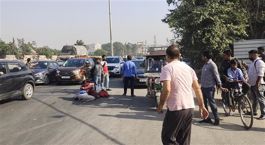
Photo for representational purpose only.
Washington DC
Which organisation does not want a highly skilled professional at workplace? But ‘to err is human' suggests a new study as faster things happen, the worse we remember them, thereby increasing the risk factor for making errors when interrupted.
(Follow The Tribune on Facebook; and Twitter @thetribunechd)
According to researchers, the experienced workers are generally faster at performing procedural tasks, meaning their actions are more closely spaced in time and thus more confusable when they attempt to recall where to resume a task after being interrupted.
“Suppose a nurse is interrupted while preparing to give a dose of medication and then must remember whether he or she administered the dose," said lead investigator Erik Altmann from Michigan State University in the US.
“The more experienced nurse will remember less accurately than a less-practiced nurse, other things being equal, if the more experienced nurse performs the steps involved in administering medication more quickly,” Altmann added.
The researchers explained it is not to say that skilled nurses should avoid giving medication, but only high skill levels could be the major reason for increased errors.
The experts, who perform a task quickly and accurately, have probably figured out strategies for keeping their place in a task.
The researchers in the study published online in the Journal of Experimental Psychology: General analysed 224 people and performed two sessions of a computer-based procedural task on separate days.
The participants were interrupted randomly by a simple typing task after which they had to remember the last step they performed to select the correct step to perform next.
In the second session, the participants became faster and on most measures, more accurate and after interruptions, they became less accurate, making more errors by resuming the task at the wrong spot.
"The faster things happen, the worse we remember them," Altmann said, adding when workers are interrupted in the middle of critical procedures, as in emergency rooms or intensive care units, they may benefit from training and equipment design that helps them remember where they left off. —ANI



























